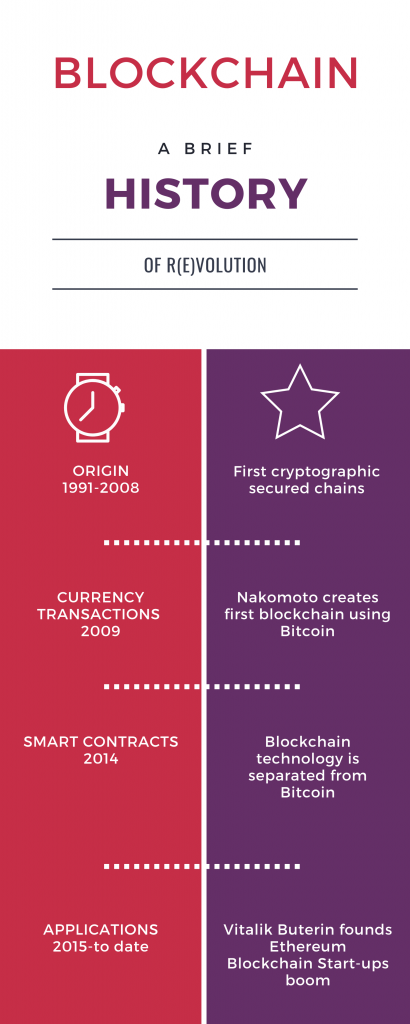Who is leading the Blockchain R(e)volution? And, why have these people fallen for Blockchain technology? Answers to this question, as well as the overview of the history of Blockchain industry with the list of Blockchain stars names and their contribution to the technology development, you will find in this blog post. Don’t miss the reflections on the journey that brought many people to Blockchain: how their choice was possibly influenced by their previous experiences with centralization and how their political and social values evolved to libertarianism and crypto – anarchism.
At first, let’s have a look at the timeline of the blockchain history and the list of some outstanding people who made strong contribution to the development of blockchain.

Blockchain legends
1. Satoshi Nakamoto, a pseudonym of a founder or founders of Blockchain, who developed and implemented bitcoin’s original blockchain and whose identity is mysterious and unknown

2. Brian Behlendorf, a game-changer and blockchain evangelist, now works as an Executive Director of Hyperledger
3. Vitalik Buterin, being 19 years old he created the second largest cryptocurrency in the world and the blockchain platform – Ethereum
4. Amber Baldet, a former JP Morgan banker, she created Clovyr – an app store of blockchains
5. Jed McCaleb, one of the most well-known and controversial figures in the crypto, a founder of Ripple and Stellar cryptocurrencies
6. Jihan Wu, a Super Miner (not Mario) and a leading supporter of Blockchain cash, a very promising figure in the Blockchain world
7. Justin Sun, CEO of BitTorrent – a pear-to-pear computer program, used for uploading and downloading files.
and many, many others.
Source: https://www.nytimes.com/2018/06/27/business/dealbook/blockchain-stars.html
Except those blockchain stars a lot of people around the globe, who trust in Blockchain and see it as a technology of the future. The crypto users can be divided into two main categories:
- those, who want to get rich: bitcoin traders, investors, bitcoin miners
- those, who want to make the world a better place: blockchain activists, blockchain non-profit platforms, blockchain evangelists
The true blockchain evangelists are idealists and r(e)volutioners. Maybe, that is why, they are not understood. They are mistrusted because the paradigm of the business is pragmatic and rational. In the modern economics the value should have a tangible asset, while cryptocurrencies are digital money. They are just digits and encryptions. Crypto-money has no physical form. For old-school businessmen and for the majority of the population this idea does not look trustworthy. It looks risky and unthought. The idea of having control over everything seems more realistic. There should be somebody, who is responsible. Decentralization makes technology responsible. Technology has no feelings or wishes. It just follows algorithms and does it automatically. The people, who are fascinated by the idea of decentralization, are fond of freedom. They believe in the creative and thinking power of humanity and equality. Many of them lived in the highly-centralised societies, like: Soviet Union, China or worked in the banks or with investments. They know all the flaws of centralisation and can imagine how totalitarianism could exploit technologies, in order to establish regimes of surveillance and control, which would be hard to overthrow.
The privacy of data is another crucial value of the blockchain idealists. We’ve heard that data is the new oil. But what is benefit for the ordinary person in data monetization? While data analytics companies make money on our data, we loose a part of our identity and pieces of out personal life. Our data is our human rights. The information, which is actually invaluable, is sold and bought mostly without us knowing that. Privacy is very dear to the blockchain people. The blockchain applications are meant to be transparent. They are to a certain extent. At the end, the user decides which data she wants to share, which key is public and which is private. Public keys do not give away private data. Users identities are not revealed, while private keys have digital signatures.
Decentralization and privacy are political values of libertarians and anarchists. Blockchain, the decentralized system on which cryptocurrencies are based, is in its nature a libertarian construct: It rejects the necessity for an intermediary in transactions, allowing people to have complete control of their assets and transactions.
Libertarians believe that the government should have minimal interference in the lives and finances of its citizens. The cryptocurrency community believes in a monetary system free from centralized oversight, with decisions driven by the masses rather than regulators. Many of them dream about crypto-anarchy with a peer-to-peer network of trust where actions are transparent and visible to all, ushering in a crypto-anarchist utopia.
Source: https://qz.com/1284178/almost-half-of-cryptocurrency-and-bitcoin-bros-identify-as-libertarian/
According to the Global Cryptocurrency Benchmarkiing study from University of Cambridge, 2017 , 2.9 to 5.8 million unique active users are using cryptocurrency and cryptocurrency wallets. What is the personal and professional profile of the people who are in favour of the progressive blockchain technology?
Based on 2gether’s data, more than half the platform’s userbase (56%) is 26–45 years old, and 77% of the whole userbase are men. Besides that, 15,64% of users work as “lawyers, accountants or economists”, 8,82% are “senior executives or businessmen” and 11,20% of the users identify as “students”. The average crypto user is a middle-aged male white-collar work with an advanced academic background.
Source: https://medium.com/2gether/who-are-crypto-users-and-what-do-they-do-now-we-know-efaf01aa5d3
So, these people are well-educated, intelligent and open-minded, what makes them the perfect drive force for the blockchain r(e)volution. And, all the people on the Earth, without exception, have a right to be educated and to be free. They also can understand how to use the Blockchain technology and how it can beneficial for everyone. Being optimistic, I would like to finish the post with the citation of the PayPal co-founder, that reveals the controversy of our understanding of the innovative technologies in our lives. The roles of technological processes which drive humanity to the future could be different as well as the outcomes of their implementation.
“Crypto is libertarian, AI is communist.” Peter Thiel
Source: https://www.inc.com/sonya-mann/thiel-ai-cryptocurrency.html
Think about it today, because today is the time, when the future is made.




Great blog post! I am all for making the world a better place!
I didn’t know about crypto-libertarians before – crypto-anarchy sounds kind of scary…
Your blogpost is very interesting and informative. Was great to learn about blockchain legends!